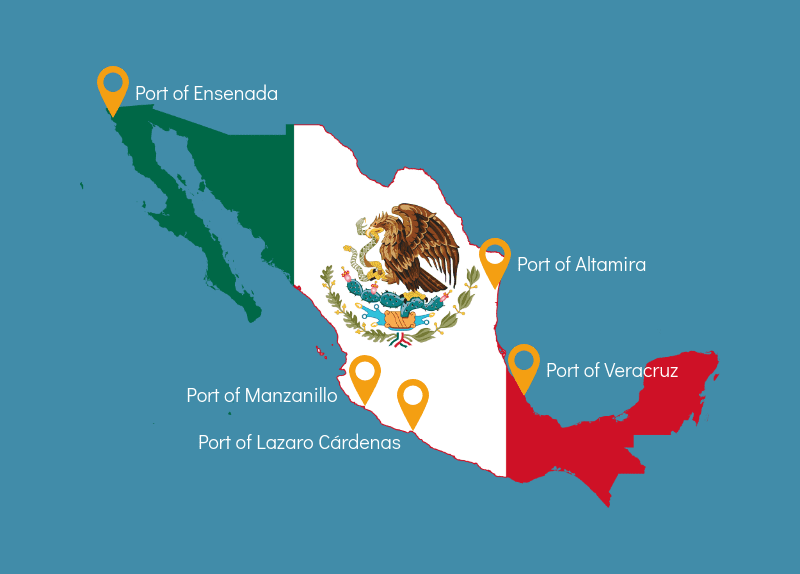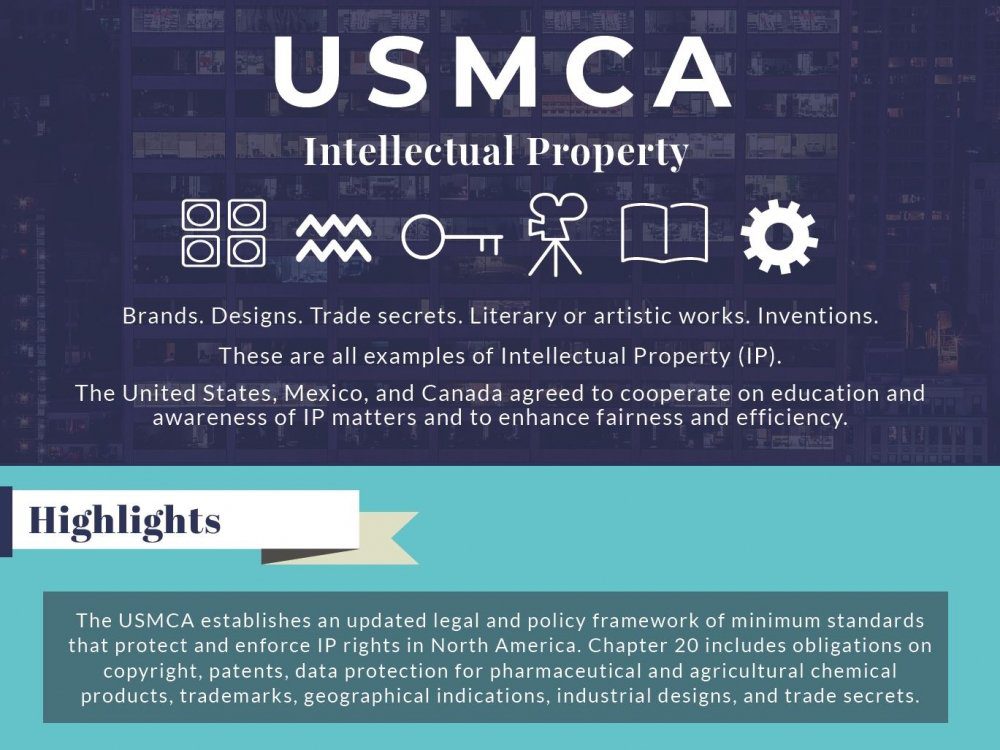Last Updated on February 26, 2024
Mexico's supply chain industry has become an integral part of the global supply chain network, providing a strategic link between North and South America. As a result of its advantageous location, highly-skilled workforce, and favorable business climate, Mexico has emerged as a key player in the global supply chain industry, offering significant benefits for companies looking to set up operations there.
In this blog post, we will explore how Mexico's supply chain industry has evolved in recent years, the advantages it offers to businesses, and the ways in which the country is positioning itself to continue playing a critical role in the global economy. From infrastructure investments to sustainability initiatives, we will examine the key factors driving Mexico's success as a key player in the global supply chain industry.
Exploring the Advantages of Mexico's Supply Chain Industry in the Global Market
Mexico's supply chain industry boasts a multitude of advantages that have positioned the country as a key player in the global market. From its strategic location to its favorable business climate, Mexico offers a range of benefits to businesses looking to establish a presence in the region. Some of the most significant advantages of Mexico's supply chain industry include:
Strategic location: Mexico's location is a significant advantage for companies looking to integrate into global supply chains. Its proximity to the United States, its largest trading partner, has enabled it to become a crucial link in North America's supply chain. Additionally, Mexico's location provides easy access to both the Atlantic and Pacific oceans, making it an ideal location for companies looking to produce goods for both North and South American markets.

Source: iContainers "Top 5 Ports in Mexico"
Skilled workforce: Mexico's workforce is highly skilled, particularly in the areas of engineering, manufacturing, and logistics. This has made it an attractive destination for international companies looking to establish operations in Mexico. Additionally, Mexico has a large and growing population, providing a reliable and plentiful source of labor.
Competitive manufacturing environment: Mexico's manufacturing environment is highly competitive, with a wide range of industries and sectors represented. This has enabled it to attract a diverse range of international companies, from automotive and aerospace to medical devices and electronics. Additionally, Mexico offers competitive labor and production costs, making it an attractive destination for companies looking to reduce their production costs.
Access to key markets: Mexico's location, coupled with its membership in several key trade agreements, provides access to a range of key markets. These trade agreements, including United States-Mexico-Canada Agreement (USMCA), the Pacific Alliance, and the European Union-Mexico Free Trade Agreement, have helped to boost Mexico's supply chain industry by providing access to a range of international markets and reducing trade barriers.
Mexico's advantages as a key player in global supply chains have made it a crucial link in the production and distribution of goods worldwide, positioning the country as an attractive destination for international companies seeking to integrate into global supply chains as markets continue to evolve.
The Role of Trade Agreements in Mexico's Supply Chain Industry Section
Mexico's supply chain industry has been significantly impacted by the country's membership in several key trade agreements, including the aforementioned USMCA. Trade agreements have helped to reduce trade barriers and promote free trade between Mexico and its trading partners. This has made it easier for companies to establish operations in Mexico and to import and export goods across borders.
Mexico's supply chain industry has benefited from these agreements in several ways
According to the USMCA Coalition, USMCA was a major milestone for small businesses: it was the first trade agreement dedicated to the interests of small businesses.
Canada and Mexico are the top two export destinations for U.S. small and medium-size enterprises, more than 120,000 of which sell their goods and services in our two North American neighbors. When an American small business starts exporting, it’s almost always to Canada or Mexico.
Gaining Access to International Markets
As a result of the expansion of trade agreements, Mexico has gained access to international markets, increasing its exports and attracting more foreign investment. Thus, Mexico's economy has been diversified and new opportunities have been created for businesses.
According to data from the World Bank, Mexico's exports have increased significantly over the past two decades, from $88 billion in 1999 to $409 billion in 2019. This growth in exports has been accompanied by a corresponding increase in foreign investment, with Mexico attracting over $31 billion in foreign direct investment in 2019 alone.
Intellectual Property Rights and Mexico
Mexico has benefited from trade agreements that protect its intellectual property. Because of this, international companies are more confident about investing in Mexico, knowing that their intellectual property rights will be protected.

Source: The Wilson Center "USMCA Intellectual Property"
The USMCA protects intellectual property rights, including patents, trademarks, and copyrights. These provisions are designed to ensure that businesses can protect their intellectual property when operating in Mexico. This in turn makes the country a more attractive destination for foreign investment.
Mexico's Supply Chain Industry's Commitment to Sustainability
Mexico's supply chain industry is dedicated to promoting sustainability, acknowledging the significance of environmental, social, and economic sustainability. The industry has implemented several policies and initiatives aimed at promoting sustainability, such as:
National Development Plan: Mexico's National Development Plan includes a focus on sustainable development, with a goal of promoting economic growth while protecting the environment and promoting social inclusion.
Sustainable supply chain guidelines: Mexico has developed sustainable supply chain guidelines, which provide a framework for companies to incorporate sustainability into their supply chain operations. These guidelines cover areas such as environmental management, social responsibility, and ethical business practices.
Mexico's Ministry of Environment and Natural Resources (SEMARNAT) developed the "Guidelines for Sustainable Supply Chains" in 2015, which provides a framework for companies to integrate sustainability into their supply chain operations. The guidelines cover a range of topics, including environmental management, social responsibility, and economic viability. They are intended to help companies improve their environmental performance, reduce their carbon footprint, and increase their competitiveness on global markets.
Promotion of renewable energy: Mexico has implemented policies to promote the use of renewable energy, including the implementation of a clean energy target of 35% by 2024. This has encouraged companies operating in Mexico to invest in renewable energy sources, reducing their carbon footprint and promoting sustainability.
Certification programs: Mexico has implemented certification programs, such as the Environmental Quality Seal and the Social Responsibility Seal, which recognize companies that have demonstrated a commitment to sustainability in their operations.
Collaboration with stakeholders: Mexico has worked closely with stakeholders, including businesses, NGOs, and government agencies, to promote sustainability in the supply chain industry. This collaboration has helped to build awareness and understanding of the importance of sustainability and has encouraged companies to adopt sustainable practices in their operations.
According to EGADE Business School:
Mexico's Ministry of Environment and Natural Resources (SEMARNAT) has partnered with various stakeholders, including businesses and NGOs, to promote sustainable supply chain practices through the "Mexican Alliance for Sustainable Production and Consumption" (AMCES). The alliance aims to improve the environmental and social performance of supply chains in Mexico by promoting sustainable practices and providing technical assistance to businesses. AMCES has developed a set of guidelines for sustainable production and consumption, which provide a framework for businesses to incorporate sustainability into their operations.
It is through the implementation of policies and initiatives that Mexico is positioning itself as a leader in sustainable supply chain practices and encouraging companies to adopt sustainable practices in their operations.
Conclusion: Mexico's Supply Chain Industry Is a Vital Component of the Global Supply Chain Ecosystem
In conclusion, Mexico's supply chain industry has grown and evolved to become a vital component of the global supply chain ecosystem. The country's unique advantages, including its strategic location, membership in key trade agreements, investment in infrastructure, and commitment to sustainability, have made it an attractive location for companies looking to establish a presence in the region.
The supply chain industry of Mexico is poised to play an even more significant role in the global economy as the world becomes increasingly interconnected. Investing in infrastructure and focusing on sustainability will enable Mexico's supply chain industry to continue to grow and evolve to meet the needs of businesses and consumers around the world.
FAQS on Mexico's Supply Chain Industry
Q1. What are the key advantages of Mexico's supply chain industry in the global market?
A1. Mexico's supply chain industry offers advantages such as its strategic location, a highly skilled workforce, a competitive manufacturing environment, and access to key markets through trade agreements.
Q2. How has Mexico's membership in trade agreements impacted its supply chain industry?
A2. Mexico's membership in trade agreements like the USMCA has reduced trade barriers, increased access to international markets, and attracted foreign investment, leading to economic diversification.
Q3. How does Mexico protect intellectual property rights in its supply chain industry?
A3. Mexico, through trade agreements like the USMCA, protects intellectual property rights, including patents, trademarks, and copyrights, which enhances its appeal to foreign investors.
Q4. What sustainability initiatives has Mexico's supply chain industry implemented?
A4. Mexico has introduced sustainability measures like a National Development Plan focused on sustainable development, sustainable supply chain guidelines, promotion of renewable energy, and certification programs to promote environmental and social responsibility.
Q5. How is Mexico positioning itself as a leader in sustainable supply chain practices?
A5. Mexico collaborates with various stakeholders, including businesses and NGOs, to promote sustainable supply chain practices, and it's implementing policies and initiatives to encourage companies to adopt sustainable practices in their operations.
About NovaLink
As a manufacturer in Mexico, NovaLink employs a unique approach that transcends the traditional model of shelter production. More than just the location of your manufacturing, we would like to become a partner in your manufacturing in Mexico. You will be able to relocate or initiate manufacturing for your company in Mexico in a low-cost labor environment with very little delay or up-front costs. Find out how we can help you by handling the manufacturing process.
There are NovaLink facilities in the border cities of Brownsville, Texas, Matamoros, Mexico, and Saltillo, Mexico.